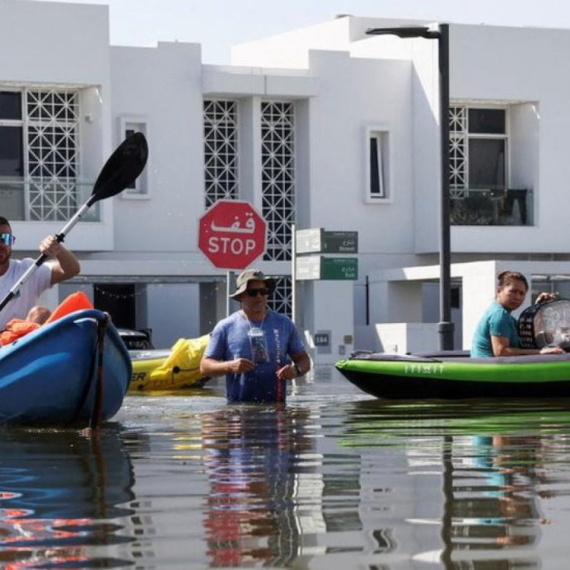"Economic activity no longer declining"
Finance Minister Diana Dragutinović says the decline of Serbia's economic activity has come to an end.
Saturday, 05.09.2009.
14:40

Finance Minister Diana Dragutinovic says the decline of Serbia's economic activity has come to an end. However, she warned that the speed of the growth also depends on the recovery of other economies. "Economic activity no longer declining" Dragutinovic told Belgrade daily Vecenje Novosti that there are several reasons for the improved collecting of public revenues in June, and mentioned one-time measures including the decision to have vehicles with Montenegrin license plates registered anew in Serbia. She also spoke about the implementation of an agreement reached with the IMF in this context, and the economy's better condition compared to the first half of 2009. The minister explained that liquidity has improved, and added that the state "takes credit for this, after all". Estimates show that Serbia will end this year with the public debt's participation in the GDP of 34 percent, which is a regional average. "However, in one year alone, we have increased the public debt participation in the GDP to almost 34 from 25 percent. That came as a consequence of a combination of unfavorable factors – loans, decreasing value of the dinar, and GDP's stagnation," Dragutinovic said. In order for the public financing to maintain a sustainable level in the mid-term, this number must not exceed 40 to 45 percent, noted the minister. "As an economist, I know that borrowing can help, but just like doping, it's a short-term mean. After indebtedness grows, as a rule either higher tax rates or lower public spending follow. Nothing is free in economy, the only question is who will foot the bill," Dragutinovic concluded.
"Economic activity no longer declining"
Dragutinović told Belgrade daily Večenje Novosti that there are several reasons for the improved collecting of public revenues in June, and mentioned one-time measures including the decision to have vehicles with Montenegrin license plates registered anew in Serbia.She also spoke about the implementation of an agreement reached with the IMF in this context, and the economy's better condition compared to the first half of 2009.
The minister explained that liquidity has improved, and added that the state "takes credit for this, after all".
Estimates show that Serbia will end this year with the public debt's participation in the GDP of 34 percent, which is a regional average.
"However, in one year alone, we have increased the public debt participation in the GDP to almost 34 from 25 percent. That came as a consequence of a combination of unfavorable factors – loans, decreasing value of the dinar, and GDP's stagnation," Dragutinović said.
In order for the public financing to maintain a sustainable level in the mid-term, this number must not exceed 40 to 45 percent, noted the minister.
"As an economist, I know that borrowing can help, but just like doping, it's a short-term mean. After indebtedness grows, as a rule either higher tax rates or lower public spending follow. Nothing is free in economy, the only question is who will foot the bill," Dragutinović concluded.

























































Komentari 1
Pogledaj komentare